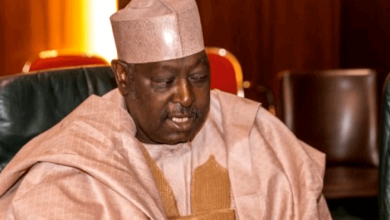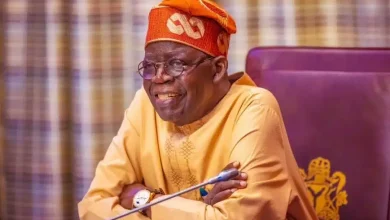Otedola Alleges Banks Used ‘Bewitching Ladies’ to Lure Him into Loan Agreements

Femi Otedola, a Nigerian billionaire, discussed how banks used “bewitching ladies” to secure his deposits and loan agreements when his company was at its most prosperous.
Otedola reportedly disclosed this in his recently unpublished memoir, “Making It Big: Lessons from a Life in Business.”
In passages from his memoir that TheCable was able to view, Otedola described how several financial crises—such as the global collapse of crude oil prices, the devaluation of the naira, and the stock market—wiped out a large amount of his wealth and left his companies heavily indebted.
I lost over US$480 million as a result of the oil price collapse, US$258 million due to the naira’s devaluation, US$320 million due to interest accruing, and an additional US$160 million as a result of the stock market meltdown.
“Devastating, like a horrible nightmare, but a nightmare would have been preferable: I would wake up when the day broke.” From this, there was no awakening,” Otedola wrote.
Otedola explained how his fortunes drastically changed and how banks once went out of their way to do business with him.
Read Also: South East Benefiting from Tinubu’s Road and Bridge Developments
He claimed that at one point, the banks were smitten with him and would stop at nothing to court, do business with, lend to, and deposit money from me.
“To make their offers seem more convincing, they would send seducing women, and now I was waking up to the sight of burly, barrel-chested men waiting for me to pass through my gate.”
From Diesel Drums to the Mega-Enterprise
When Zenon Petroleum expanded from selling diesel in drums to controlling the biggest portion of the local diesel market, Otedola reportedly shot to fame.
In order to expand, he later bought African Petroleum and changed its name to Forte Oil Plc, which at its height was among the top-performing stocks on the Nigerian Exchange.
When crude oil prices plummeted to $40 per barrel in 2008, Otedola ordered a huge shipment of diesel at a time when crude oil was trading at $147 per barrel. This was the beginning of trouble.
His businesses faced low diesel prices and high dollar liabilities in 2009, which led to a devaluation of the naira from ₦120/$ to ₦167/$. This, along with declining foreign exchange inflows, caused him to incur enormous debt.





